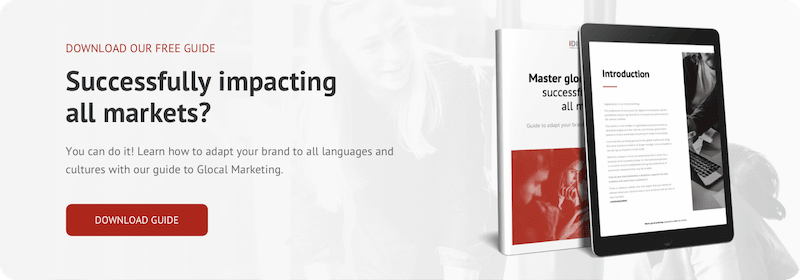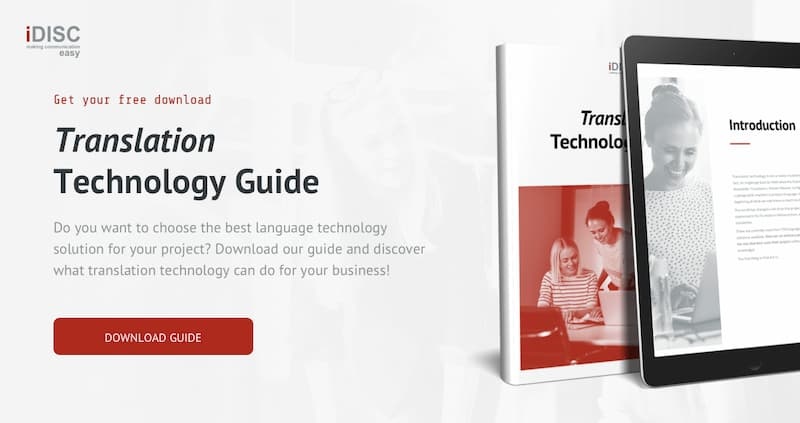Why pay attention to SEO in German?
Well, if you’re reading this article, chances are that you’re trying to improve your marketing strategy to effectively impact your target audience in your target market, in this case Germany.
As you already know, your website is your brand’s first representative in the digital world and SEO is a fundamental tool to position it and attract your target. Therefore, when it comes to reaching international audiences, it’s essential to adapt and localize your SEO strategy to maximize its effectiveness.
If this is the case for you then yes, you should pay attention to SEO in German, SEO in English, SEO in Spanish, and in all the languages the audience in your target markets will use to search.
In this article, we will focus on SEO localization in German, providing practical tips on how to optimize your website for German-speaking audiences and avoid the most common mistakes in international SEO.
Is SEO more complex in German?
If you speak German without it being your mother tongue - in other words, if you’ve learned it - you will know the characteristics of the language and the complexity of its grammar. An SEO strategy in German can, therefore, be complex if it’s not your native language. Let's analyze the characteristics that make even experts consider it a challenge:
1— Grammatically complex language
German is well known to be a grammatically complex language, with declension, gender and conjugation rules that can be difficult for non-native speakers to master. This means that German translators and SEO specialists must have a deep understanding of the language to correctly adapt content and keywords.
A poorly-declined keyword changes everything and will not be effective, potentially causing a company to miss out on thousands of sales opportunities.
2 — Regional variations and dialects
German has regional and dialectal variants that can influence users' search preferences. It’s important to take these variations into account when conducting keyword research and to tailor content to specific audiences in different regions.
Each Bundesland or federal state has different characteristics that can be decisive for your SEO strategy in German.
3 — Cultural sensitivities and local adaptation
As in all markets, the socio-cultural environment of the German public will also influence SEO strategies. This means that, to get SEO translation right, you not only have to know the language, but also the local culture, so as to accurately and adequately reflect the nuances of German.
You’ll already be familiar with this reflection if you’re a regular reader of our blog, but allow us to underline this point:
If you know how to speak a language, do you know how to translate? If you know how to translate, can you do SEO translation?
To implement a multilingual SEO strategy to win over different global audiences, you should work with professionals trained and specialized not only in translation, but also in search engine optimization (SEO).
4 — Influence of local search engines
Although Google is the dominant search engine in Germany, with 90% activity, there are also other relevant local search engines such as Bing, Yahoo and T-Online. To create a complete SEO strategy in German, it’s important to consider these search engines and optimize content in line with their algorithms and preferences.
It’s true that Google is the world's leading search engine, but understanding the preferences of your target market audience also means knowing which search engines they use and applying your SEO strategy to them.
How to optimize your website for German-speaking audiences
Keyword research
Start by conducting extensive keyword research in German. You can use tools such as Google Keyword Planner and SEMrush to identify valuable keywords for your strategy. Be aware of the cultural and linguistic differences between German and other languages.
It’s not a matter of translating the keywords that you use in other countries, but rather of adapting your strategy to select the keywords of interest for this specific target and those related to what you offer with your products and services.
Links and URL structure
Create a clear and easy-to-navigate structure for your website. Use a logical link structure and make sure that all the pages are interconnected in a coherent way. This will facilitate indexing of your website by search engines and improve the user experience.
Make sure that the internal and external links on your website are well-structured and use German keywords. In addition, use a clear and user-friendly URL structure that is understandable to German users and search engines.
High-quality content in German
Create unique, relevant content in German that meets the needs and interests of your target audience. Make sure the content is grammatically correct and adapted to the German writing style and cultural preferences.
In German-language SEO, search engines also consider cultural and local relevance when displaying search results. This means that understanding German culture and using local expressions and references in your content can help you generate a stronger connection with your target audience and better respond to their search intent.
There is a saying in German “Kleinvieh macht auch Mist", which translates as "Small things also add up". This saying highlights the importance of paying attention to details and not underestimating the impact of small actions, and this applies perfectly to an SEO strategy: it’s the sum of small things.
Every little bit of optimization on your website will contribute to improving its visibility and attracting the German audience. From choosing the right keywords to metadata optimization and link building, every step you take in the optimization process will be valuable and will contribute to the overall success of your SEO strategy in German.
If you’ve made it this far and need help with your internationalization strategy to reach German audiences effectively, at our translation agency iDISC we can help you. Get in touch and we’ll find the best solution for your project.
We hope you found this article interesting. You can find more articles in our blog.





